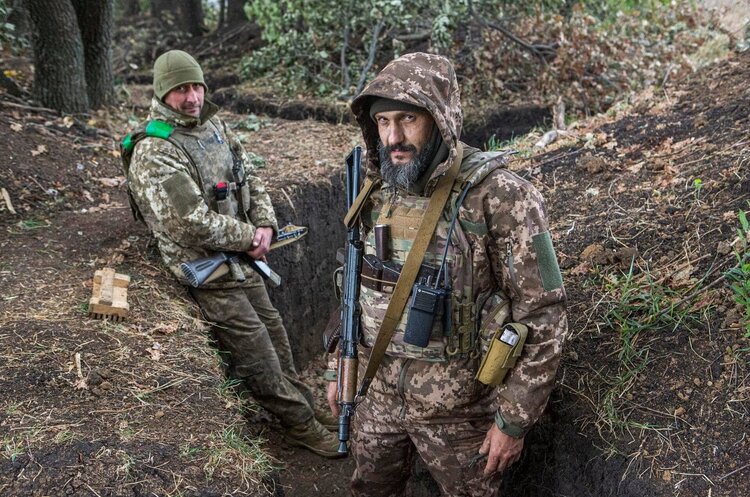Russia is again talking about creating a 15-kilometer buffer zone in Kharkiv region - ISW
Analysts doubt that Russia has enough forces and resources for this

Russian sources are renewing their long-standing calls for a "buffer zone" with Belgorod Oblast, despite the Russian military's likely inability to conduct an operation to seize significant territory in Kharkiv Oblast in the near future.
Source. This is stated in the ISW report.
On January 9, Kremlin spokesman Dmitry Peskov said that Russian troops would do everything to prevent Ukrainian shelling of the Belgorod region. Russian sources used Peskov's comments to call for Russian troops to create a "buffer zone" up to 15 km deep in Kharkiv region to keep Ukrainian MLRS and artillery away from the border with Belgorod region.
Russian ultra-nationalists have regularly called for a similar operation in the summer of 2023 amid widespread dissatisfaction with cross-border raids by pro-Ukrainian forces in Belgorod Oblast.
"A Russian invasion 15 kilometers deep and several hundred kilometers wide would be a large-scale operational event that would require a much larger concentration of forces and significantly better resources than what Russian forces currently have concentrated along the entire international border with Ukraine, least of all in the Belgorod region," the analysts write.
ISW has previously assessed that Russian forces may intensify efforts to capture Kupiansk in Kharkiv region in the coming weeks, and that the Russian grouping in the Kupiansk area appears to be better suited to conduct an intensive offensive than elsewhere in Ukraine.
The Russian military is likely to conduct only tactical-level actions in Kharkiv region from Belgorod region, which at most will serve as feints to distract and divert Ukrainian forces from a possible Russian operation in the Kupyansk sector, analysts write.
Background. According to a WSJ correspondent, the United States deliberately did not give Ukraine enough weapons for a counteroffensive in order not to provoke Putin to use nuclear weapons. Washington could have turned the tide of the war, but missed the chance.
If you have read this article to the end, we hope that means it was useful for you.
We work to ensure that our journalistic and analytical work is of high quality, and we strive to perform it as competently as possible. This also requires financial independence. Support us for only UAH 196 per month.
Become a Mind subscriber for just USD 5 per month and support the development of independent business journalism!
You can unsubscribe at any time in your LIQPAY account or by sending us an email: [email protected]



